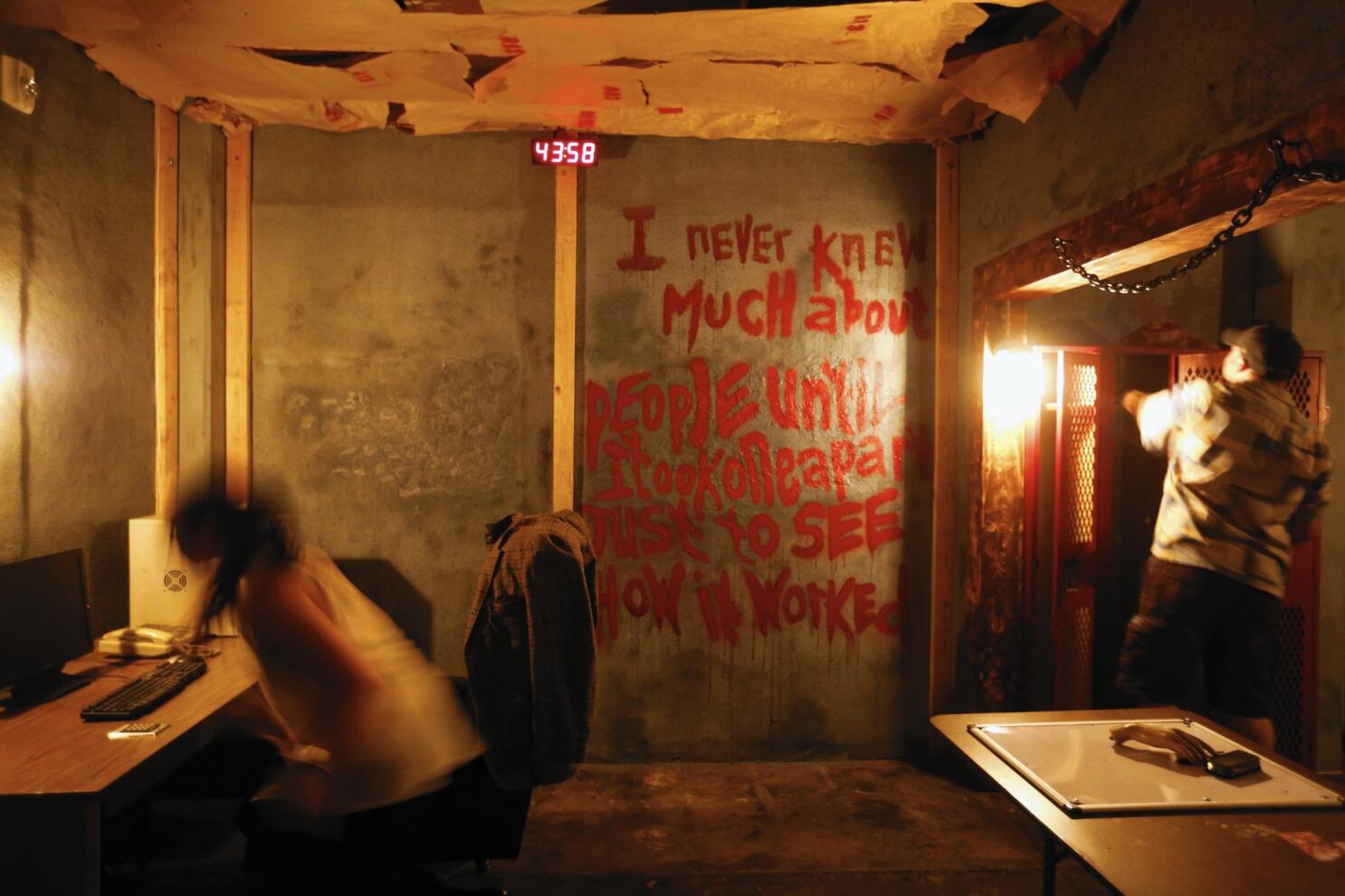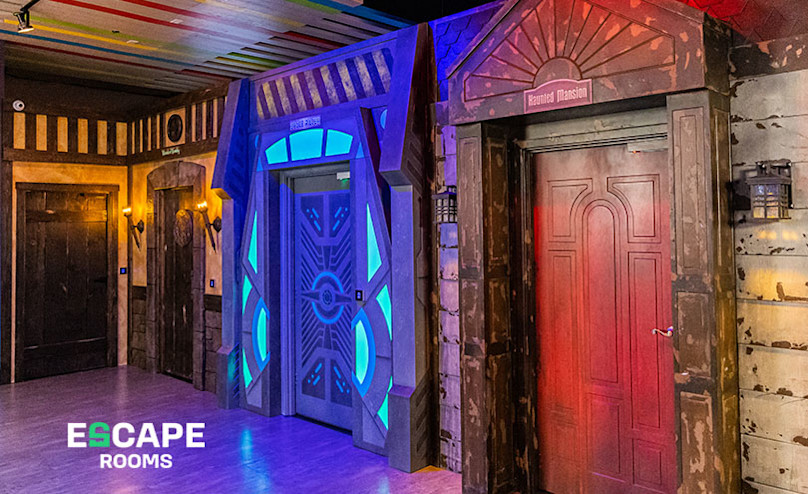Best Escape Room Experience-- Exciting Games and Puzzles for Groups
Best Escape Room Experience-- Exciting Games and Puzzles for Groups
Blog Article
Team Methods: Just How to Collaborate Effectively in a Retreat Space
Browsing the intricacies of a getaway area necessitates greater than plain excitement; it requires a well-coordinated method grounded in clear interaction, tactical function assignments, and skilled time management. Groups must actively listen to each participant's insights, designate functions that align with specific toughness, and keep normal check-ins to make certain focus and protect against redundancy. By promoting a setting that values cohesion and versatility, teams can considerably heighten their performance and success prices. The nuances of these techniques can transform the experience, yet how exactly can they be executed to take full advantage of the capacity for success?
Establish Clear Interaction

To assist in clear communication, it is necessary to designate a main point of get in touch with for information circulation. Quick, concentrated updates from each group participant can maintain the group educated without frustrating them with info.

Appoint Duties Tactically
While clear interaction establishes the structure for effective teamwork, designating duties purposefully guarantees that each team member's toughness are utilized properly. In a getaway room situation, the time-sensitive and intricate nature of obstacles requires a well-organized strategy to job delegation. By recognizing and leveraging specific proficiencies, teams can optimize their analytic capabilities and improve overall efficiency.
First, evaluate the distinct abilities and attributes of each individual. A person with an eager eye for information may excel in discovering covert things, while a logical thinker might be much better matched to addressing challenges. It's equally essential to have a leader who can supervise progression, handle the timeline, and make definitive telephone calls when needed. This role usually needs solid business and interpersonal skills.
Second, make certain that duties are versatile and adaptable. As new obstacles arise, the group has to be able to pivot, reallocating jobs as needed. This adaptability helps maintain energy and prevents traffic jams that might occur because of inflexible function jobs.
Inevitably, a strategic approach to function project not only makes the most of the strengths of each employee but also fosters a natural environment, driving the team in the direction of check here a successful escape.
Utilize Diverse Skills
Recognizing and check out here taking advantage of the diverse abilities within your team can significantly elevate your performance in a getaway space. Each team participant brings unique strengths to the table, and effectively leveraging these capabilities can expedite analytic and improve overall effectiveness. For instance, a staff member with strong logical abilities might succeed at deciphering intricate codes or patterns, while an additional with eager observational abilities may rapidly identify hidden clues that could forget.
Reliable interaction is vital to using these varied abilities. Urge staff member to articulate their insights and ideas immediately, making certain that all potential options are considered. This inclusive strategy promotes a vibrant atmosphere where imagination and vital reasoning can flourish. In addition, appointing tasks that line up with each member's toughness can avoid bottlenecks and ensure that progress is continuous.
Moreover, diversity in abilities typically equates to variety in thinking styles, which is indispensable in an escape room setup. While some challenges may require sensible thinking and accuracy, others may gain from creative and association of ideas. By acknowledging and leveraging this diversity, groups can address a broader variety of difficulties better, thereby boosting their possibilities of a successful escape.
Manage Time Properly

First, designate preliminary mins for a quick survey of the area. Identify noticeable problems and divide jobs based upon staff member' staminas, guaranteeing that nobody is idle. Establish interior time checkpoints to evaluate progress periodically; for circumstances, click over here now goal to have half the puzzles addressed by the mid-point of the game. This method can assist keep the team concentrated and stop time from sliding away undetected.
Furthermore, avoid tunnel vision. If a puzzle is taking too long, revolve staff member or carry on to one more difficulty, returning later with fresh perspectives. Communication is vital-- keep everybody upgraded on resolved puzzles and remaining jobs to avoid repetitive efforts.
Last but not least, use any kind of hints or clues moderately yet tactically - best escape room. Understanding when to ask for aid can save beneficial time. By adhering to these time administration principles, teams can dramatically boost their chances of a successful and satisfying escape space experience
Debrief and Mirror
Representation is a crucial facet of team growth and renovation in the context of retreat rooms. Once the obstacle is completed, whether effectively or otherwise, it is critical for the team to engage in an organized debriefing session. This process allows employee to analyze their performance, recognize toughness, and pinpoint areas for renovation.
Begin the debrief by reviewing what went well. Highlight details circumstances of reliable interaction, problem-solving, and partnership. Recognizing these favorable habits enhances them and motivates their repeating in future challenges.
Review minutes of complication, miscommunication, or inadequate methods. Motivate an open and constructive dialogue where group members can share their point of views without fear of objection.
Verdict
Finally, effective collaboration in a getaway space is based upon clear interaction, strategic function assignments, the effective utilization of diverse skills, and proficient time monitoring. Routine check-ins and organized debriefings are vital for maintaining emphasis and cultivating constant improvement. By producing a cohesive and flexible group atmosphere, the probability of effectively fixing challenges and achieving the goal of getting away the space is significantly boosted. This strategy not just makes sure success yet additionally advertises collective growth and understanding.
Report this page